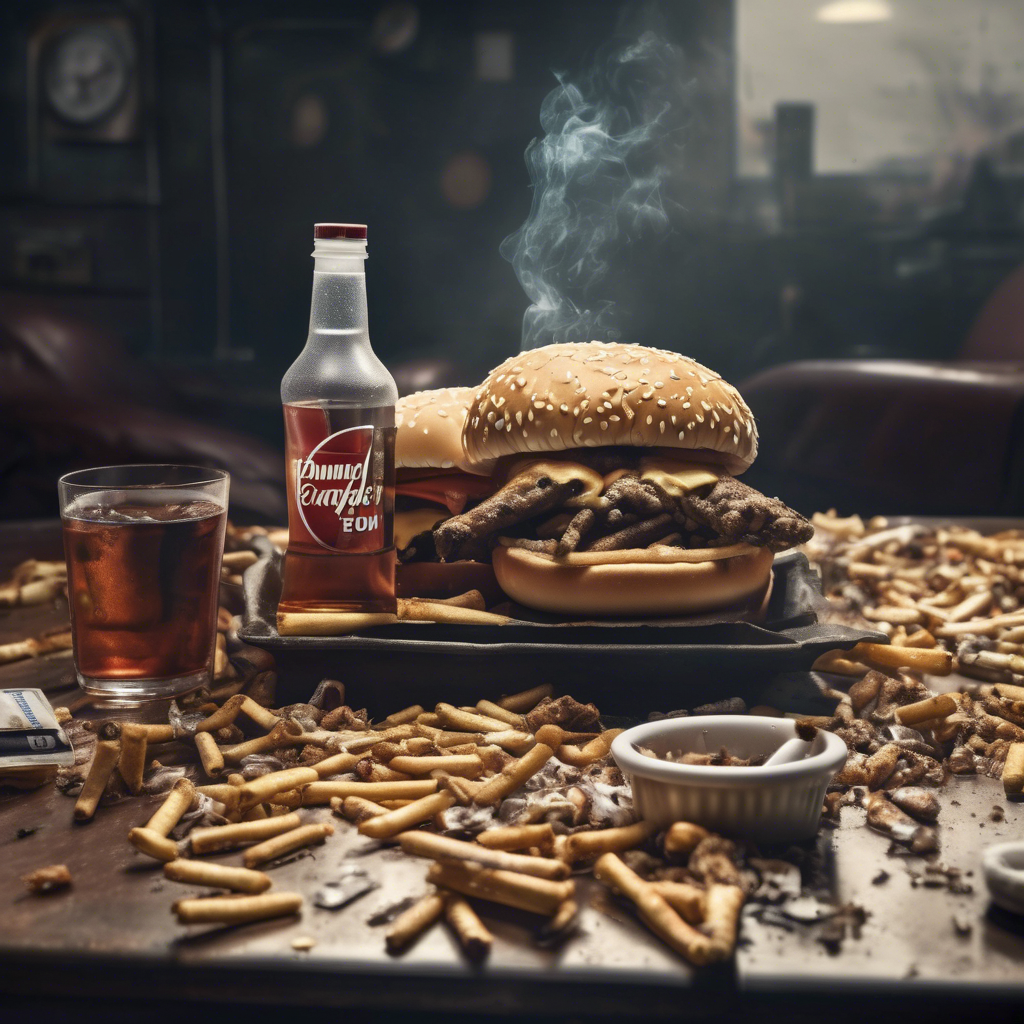
Cancer remains one of the most formidable health challenges worldwide, claiming millions of lives each year and touching countless more families. While genetic predisposition accounts for some cases, an overwhelming body of research points toward lifestyle choices as significant contributors to cancer risk. Understanding the habits that can harm our bodies and the ways we can counteract them is essential—not only for prevention but for empowerment. It's fascinating to note that nearly 30-40% of cancers could be prevented through lifestyle modifications, underscoring the power that lies in our everyday choices.
Among the most notorious culprits is smoking—a habit deeply ingrained in many cultures yet steeped in peril. Tobacco smoke contains over 7,000 chemicals, of which at least 70 are established carcinogens. When inhaled, these substances damage DNA, impair the immune system, and disrupt cellular processes, setting off a chain reaction that can culminate in cancer. Lung cancer, the deadliest form, is strongly linked to smoking, but the damage doesn't stop there; cancers of the mouth, throat, esophagus, pancreas, bladder, kidney, and cervix are all connected, highlighting smoking’s far-reaching impact. In fact, the risk increases with the number of cigarettes smoked and the length of time someone smokes—a sobering reminder that quitting at any stage can still yield substantial health benefits.
Alcohol consumption also presents significant risks in the realm of cancer. Though often seen as a social lubricant and cultural staple, excessive alcohol acts as more than just a depressant; it’s a recognized carcinogen. It increases the risk for cancers of the liver, breast, colon, esophagus, and other organs. The mechanism is multifaceted—alcohol enhances the penetration of carcinogens into cells, promotes DNA damage, and triggers chronic inflammation, which can foster a tumor-friendly environment. Interestingly, even moderate alcohol use has been linked to increased risk for certain cancers, such as breast cancer in women, challenging the long-held belief that moderate drinking is harmless or even beneficial. This insight urges a reevaluation of drinking habits in light of cancer prevention.
Beyond smoking and drinking, diet and physical activity play pivotal roles in shaping cancer risk profiles. Diets rich in processed and red meats, saturated fats, and sugars but low in fruits, vegetables, and fiber correlate with higher incidences of colorectal, stomach, and other cancers. A telling example comes from epidemiological studies showing that in countries where processed meat consumption is high, colorectal cancer rates soar correspondingly. Compounding this issue is physical inactivity, which contributes to obesity—a condition now recognized as a risk factor for at least 13 types of cancer, including breast, kidney, esophageal, and pancreatic cancer. The interplay between poor diet, sedentary habits, and weight gain creates a fertile ground for cancer development. Fun fact: the World Cancer Research Fund estimates that maintaining a healthy weight, being physically active, and eating a balanced diet could prevent up to one-third of the most common cancers globally.
Sun exposure and infectious agents also intersect with harmful habits to influence cancer risk. Ultraviolet (UV) radiation, whether from sunbathing or tanning beds, inflicts DNA damage on skin cells that can lead to melanoma—the deadliest form of skin cancer. Alarmingly, indoor tanning has been classified as a Group 1 carcinogen, placing it in the same category as tobacco and asbestos. Additionally, certain infections such as human papillomavirus (HPV) are causally linked to cancers like cervical cancer and oropharyngeal cancers. On the brighter side, medical advancements have led to effective HPV vaccines that dramatically reduce the risk of these cancers, illustrating how prevention can also be pharmacological alongside lifestyle changes.
While the risks are daunting, the path to prevention shines brighter than ever, thanks to technological innovations like OncoPreventer—an AI-powered assistant designed to guide individuals through their unique cancer prevention journeys. This intelligent platform tailors screening schedules based on personalized factors such as age, gender, family genetics, and lifestyle habits. It’s more than just a reminder tool; OncoPreventer bridges the gap between complex medical information and everyday understanding by offering clear, trustworthy answers to health concerns. Imagine having a digital health advocate that not only nudges you to schedule vital screenings but also tracks your progress with easy-to-understand timelines and summaries.
Integration is key for accessibility and ease of use, and OncoPreventer doesn't disappoint. By working seamlessly across web platforms and popular messaging apps like Telegram and WhatsApp, it fits naturally into modern life, reducing barriers to proactive care. This is especially important given that stress and forgetfulness often prevent busy individuals from keeping up with routine health checks. Empowering users with knowledge and timely prompts transforms health engagement from reactive to preventive—a shift that could translate into saving lives globally. The principle here echoes a well-known saying in medicine: "An ounce of prevention is worth a pound of cure," and OncoPreventer embodies this philosophy by arming the user with actionable, personalized insights.
In the grand fight against cancer, understanding and modifying harmful habits stands as a formidable strategy to reduce risk. Smoking, excess alcohol, unhealthy diet, inactivity, UV exposure, and infections collectively represent modifiable threats. Thankfully, with AI-driven tools like OncoPreventer, individuals no longer need to navigate these challenges alone. By harnessing technology’s power combined with medical expertise, we can forge a future where cancer prevention is more personalized, accessible, and effective. Embracing such tools not only promotes healthier living but also instills confidence and hope, revolutionizing how we perceive and combat cancer. So, take that vital step today—make informed choices, engage with innovative support systems, and champion your well-being with courage and knowledge.
#CancerPrevention #HealthyHabits #AIHealthTech #OncoPreventer #BeatCancer #WellnessJourney #EarlyDetection
Leave a Reply